
A worldwide shortage on gas and energy supplies has resulted in a surge in wholesale gas prices.
As a result, the energy price cap in the UK has risen twice this year, pushing energy bills for the average UK household up to around £2,500 per year.
While consumers are usually given the option to switch suppliers when energy bills rise, better offers are not available at the moment due to the squeeze on supplies.
As winter approachs and as Jeremy Hunt announces that the UK is now officially in a recession, many are wondering what’s the best way to save money on their heating and electricity bills during the colder months.
If you’re looking to cut your bills this year, we spoke to the experts for some useful tips.
Install a smart thermostat
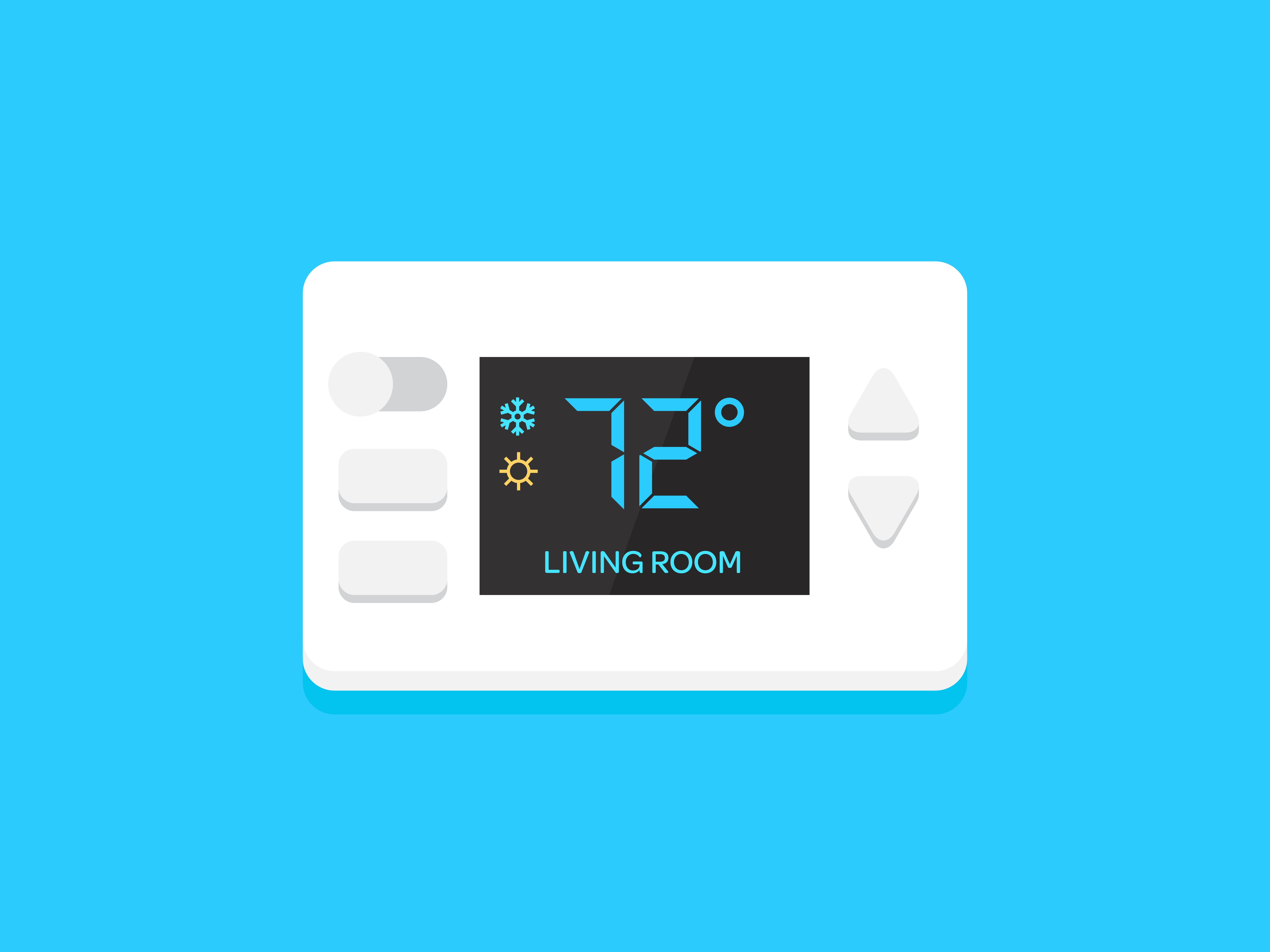
Smart thermostats connect your heating system to the internet, letting you change the temperature or switch your heating off on your smartphone or other device when you're out and about, or via your computer.
They also learn how long it takes to heat your home, so they can ensure it's at the right temperature at exactly the right time – for instance, when you come home from work or wake up in the morning – and can help heat your home more efficiently.
By installing room thermostats, programmers and thermostatic radiator valves, you could save around £75 a year, according to Money Super Market.
Install a new boiler
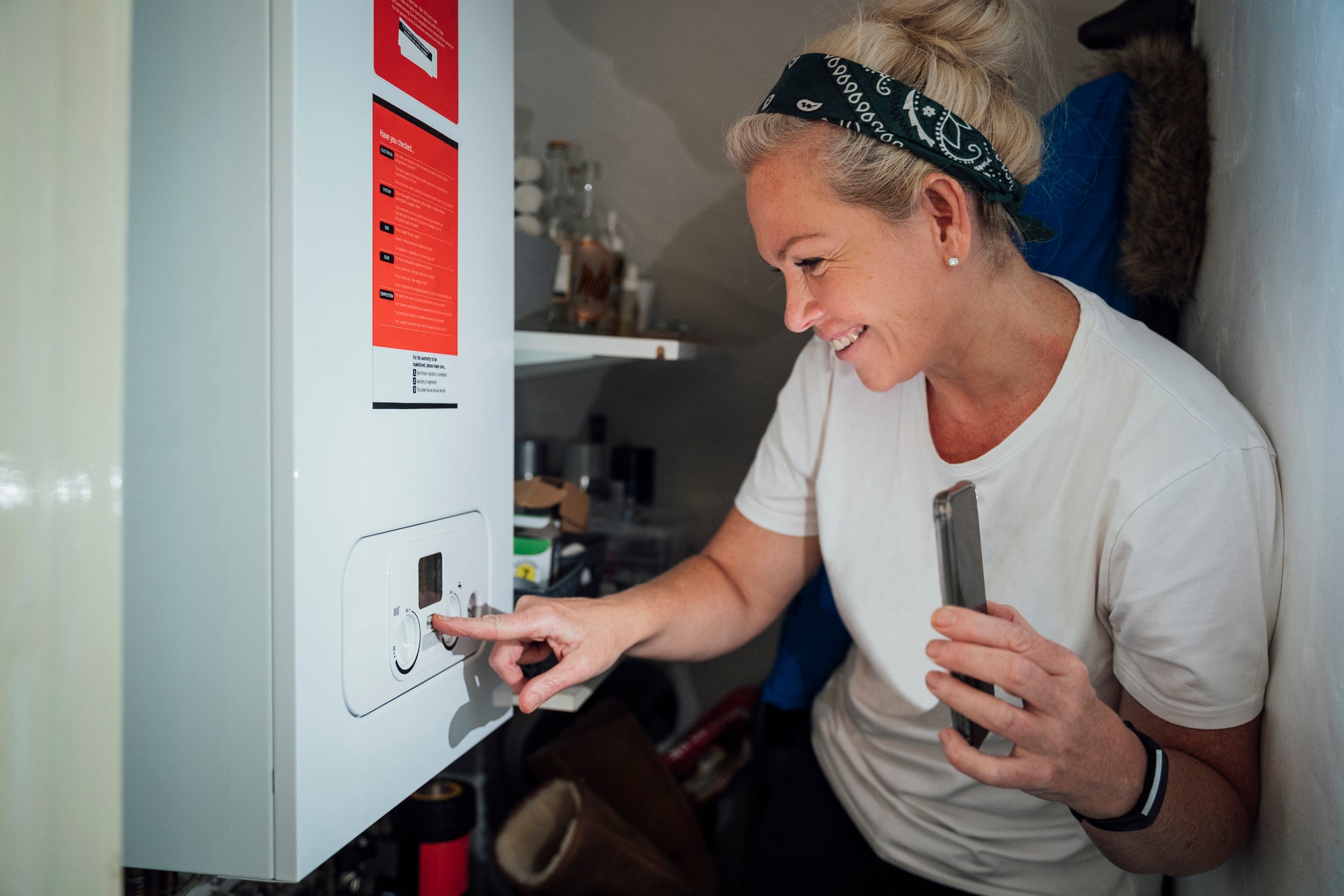
Upgrading your old boiler to an A-rated condensing boiler with a programmer, room thermostat and thermostatic radiator controls can save money.
Based on fuel prices in March 2019, a detached house upgrading from a G-rated boiler could save around £300 a year, says Money Super Market.
For more information on new boilers, visit British Gas.
Buy efficient appliances
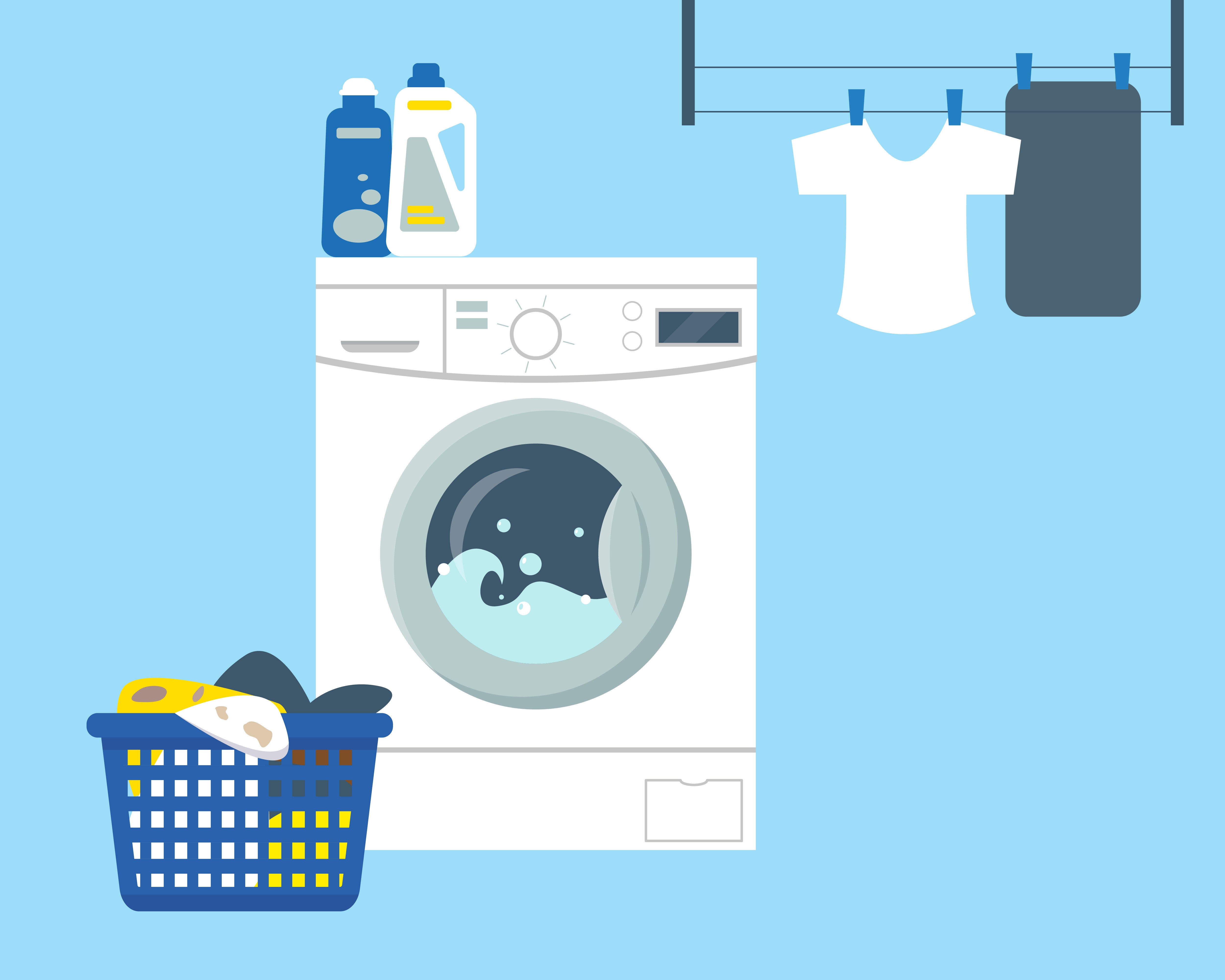
It might seem counter-intuitive, but investing in new appliances with a high-energy efficient rating will save money in the long run.
For example, an A+++ washing machine will typically use £65 less energy than an A+ one over an 11-year product lifespan.
An A+++ fridge freezer will save around £320 in energy bills over its lifetime compared to an A+ model.
Save on Energy advises customers to look out for the ENERGY STAR rating on any appliances, which is the only government-backed standard for energy efficiency.
Throw on a jumper and turn down the thermostat

Almost half the money spent on energy bills is absorbed by heating and hot water costs.
Turning your heating down by just one degree could save up to £80 a year, which means there's never been a better time to throw on your favourite knits to keep warm.
Bleed your radiators
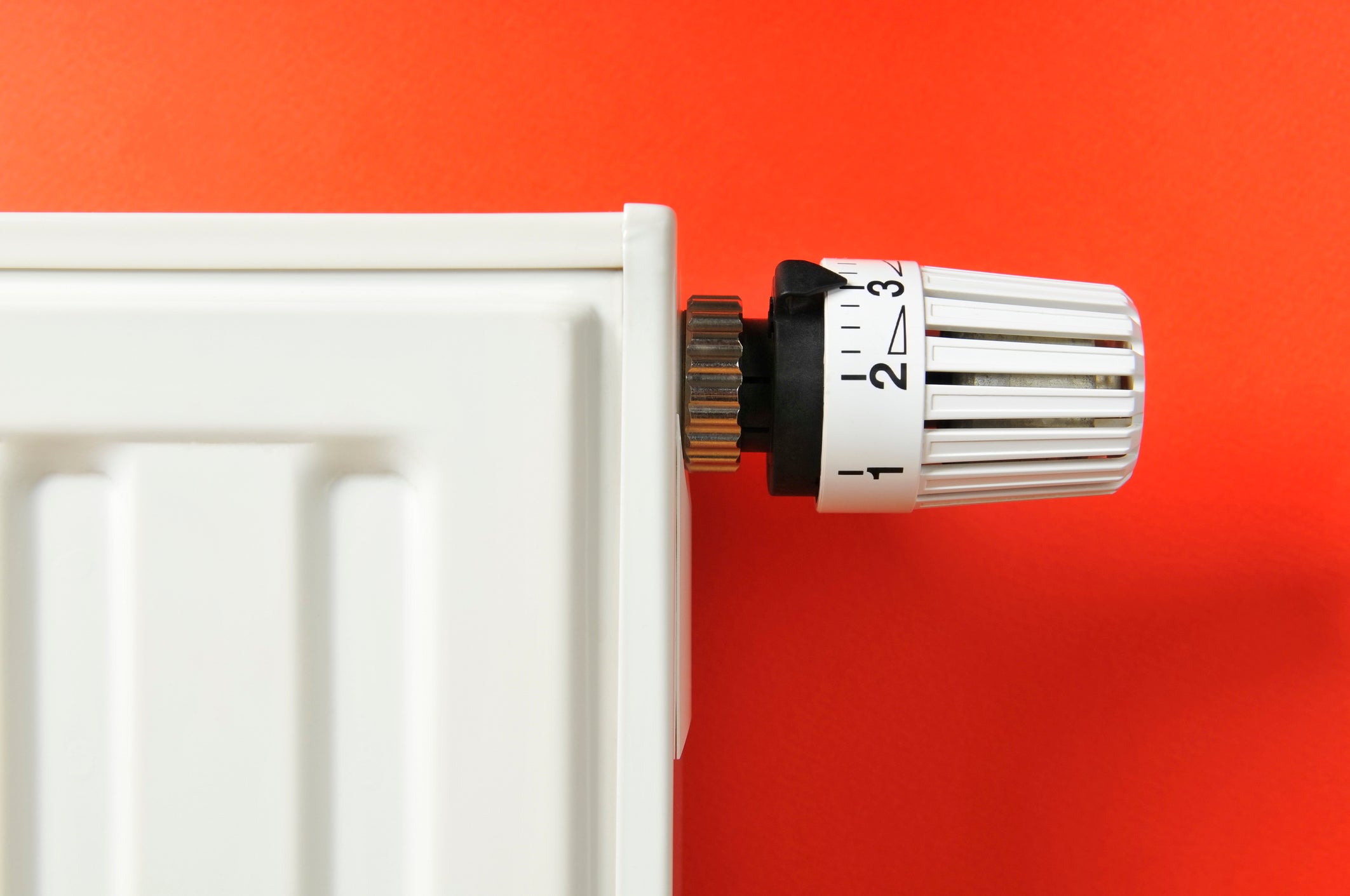
A quick and easy way to make your house more energy efficient is to bleed your radiators.
“Trapped air or gas prevents hot water from heating your radiators fully so, if you have a radiator that is warm at the bottom but cool at the top, this may well mean there is air in the system,” says the NHBC, the UK’s leading warranty and insurance provider for new build homes.
“Radiators may require bleeding to ensure maximum efficiency of the heating system.”
Make small tweaks to your daily habits

There are dozens of handy ways you can bring down your bills by making the smallest of changes.
For example, you can save around £25 a year by washing up in a bowl rather than using a running tap, while turning appliances off at the plug can save an average of £30 a year, according to Money Super Market.
“Use plug sockets that can be turned on and off via your phone, to make sure you switch unused appliances off. You could use cheaper timer plugs to schedule turning appliances off,” it advises.
Buying a more efficient shower head can save you as much as £18 per person a year on energy bills, plus if you fit a shower timer in your bathroom you could save up to £7 per person each year by cutting just one minute off every shower.
The NHBC also advises keeping sofas away from radiators to make sure heat can circulate through the room, as well as making sure you close the curtains when the sun sets to keep warmth inside the house.
Other tips include turning the TV off when you answer a call (instead of leaving it on in the background), buying draught excluders for under doors and keeping the lids on pots and pans while cooking to conserve heat.
Monitor your usage
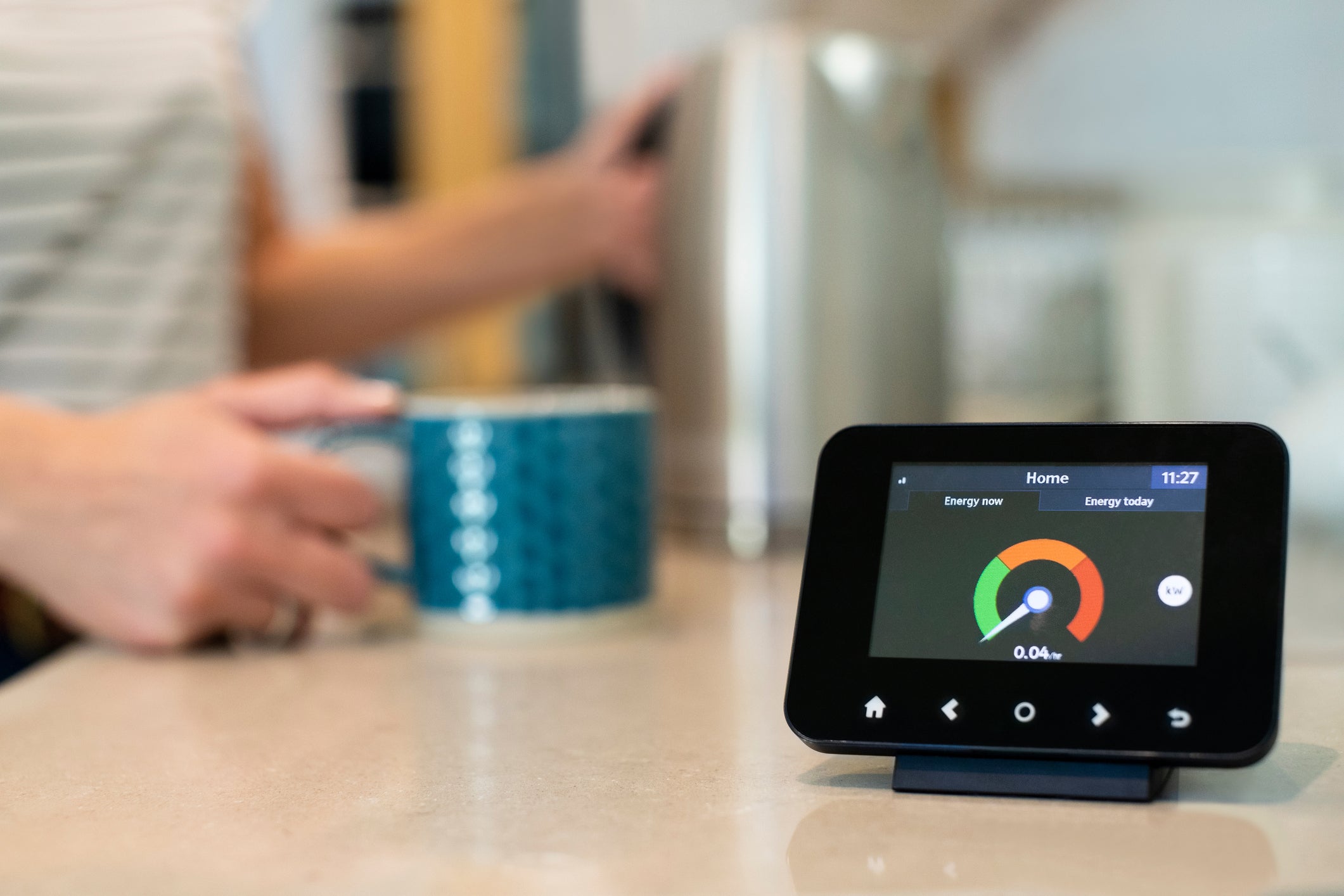
If you're at a loss as to why your bills are so high, then installing a smart meter is an easy way to keep an eye on your consumption levels.
With accurate and real time information about how much energy you are using, you'll be able to adjust your habits accordingly.
The best way to get a smart metre is by contacting your energy provider.
Shop around

While it’s unlikely that you will find a better energy deal right now, it doesn’t hurt to keep an eye on the situation and switch the moment cheaper offers become available.
Standard variable tariffs are some of the most pricey deals on the market. According to Uswitch, the difference between the average standard tariff and the cheapest deal on the market was around £170 in November 2021.
These default tariffs are what suppliers place you on when your fixed contract runs out or you do not specify which deal you wish to be placed on.
Around 52 per cent of households are left stuck on these tariffs, according to Ofgem, meaning there are millions of homes who could save by switching.
To compare energy quotes, head to websites such as Money Super Market or Compare the Market. The process is simple – you just need to put in a few details, like your postcode, current supplier, and payment and contact details.
This is Money has also compiled the best energy deals currently on the market, the majority of which are green tariffs and so more environmentally friendly.
Longer-term changes

While the above all offer fairly quick and easy changes, there are longer-term options available.
Double glazing insulates your home from the cold and helps reduce your heating bill, as well as keeping the noise out, while insulating your roof can stop heat escaping from your home.
The Citizens Advice consumer helpline can provide advice on how customers can resolve problems with their energy provider. For complex or urgent cases, or if a person is in a vulnerable situation, they may be referred onto the Extra Help Unit.
StepChange's Sue Anderson adds: “If you’re among those struggling to pay your energy bill at the end of the month, it may be worth getting in contact with a free debt advice charity – you can find lots of help on our website, stepchange.org.”







